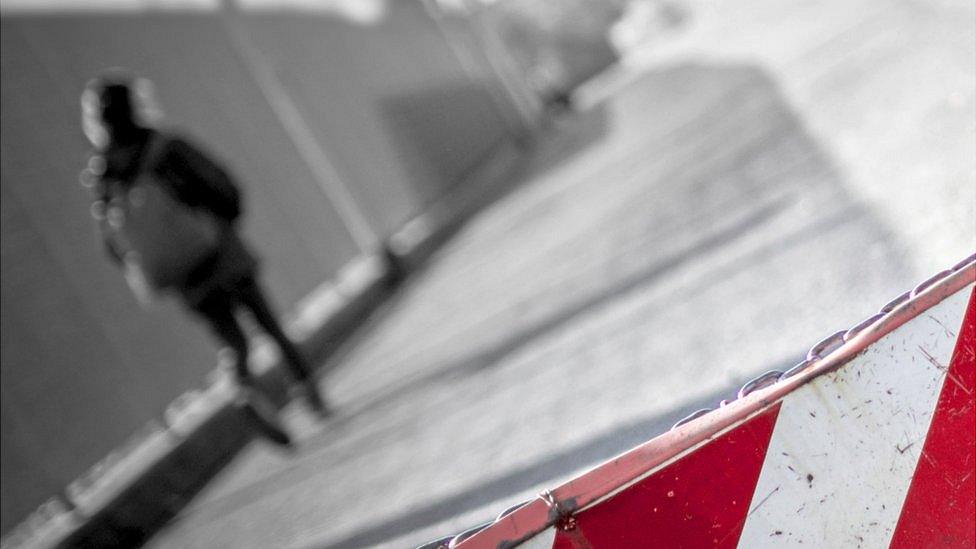What is it like to be excluded from school?
- Published
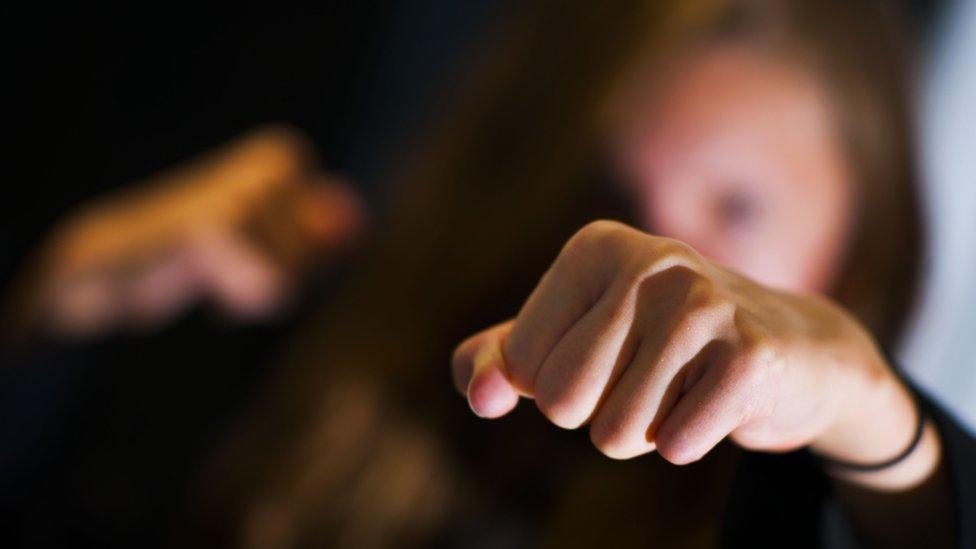
Excluded for fighting, swearing and not turning up to school for three weeks: Four children share their exclusion stories
Earlier this week the BBC revealed how the number of children permanently excluded from schools in some parts of England had risen by 300% in the past three years. But what is it like to be one of education's 0.07%?
"My behaviour wasn't good," says Jay. "I misbehaved too much.
"I was kind of like the class clown."
Jay, 15, is one of four children now studying for GCSEs at the Short Stay School for Norfolk who agreed to talk about their experiences of exclusion.
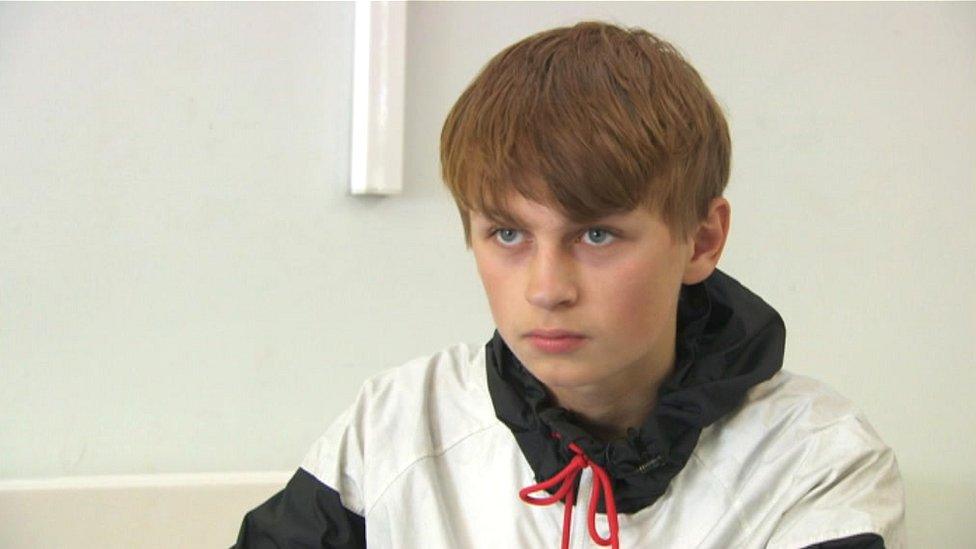
Jay's second permanent exclusion was for his "attitude and behaviour towards staff"
Jay has been permanently excluded twice - first from a primary school and then, in the past year, from his secondary school.
He was excluded, he says, because of his "attitude and behaviour towards staff".
"I was swearing at teachers and not behaving in lessons," he said.
And how was being excluded?
"I was glad at the time but then as the day came to start in a new place I was scared because I did not know anybody.

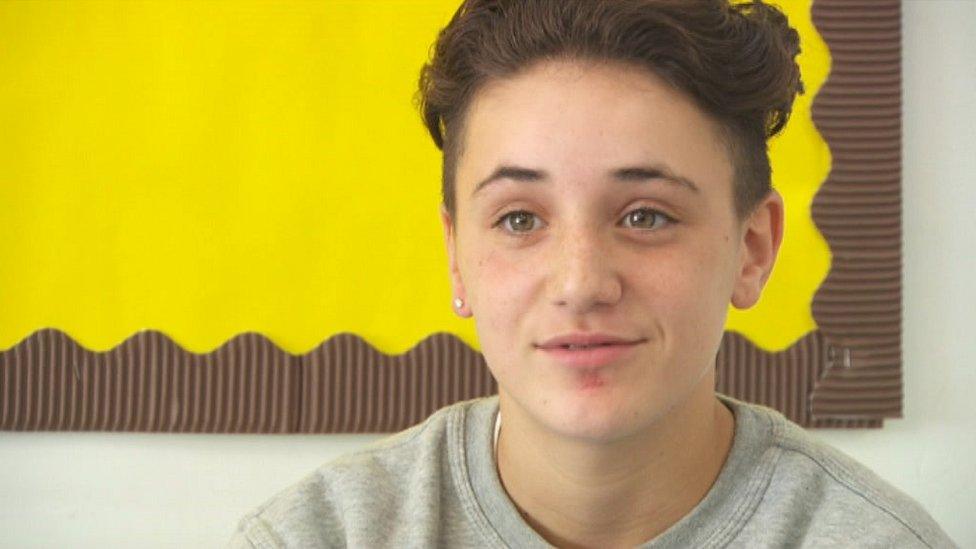
Teegan has been excluded eight times including permanent exclusions from three schools
"I now regret messing it up," says Teegan, also 15. "I wish I never messed about at my first school.
"If I could go back in time I would change a lot of things."
Teegan has been excluded eight times - three of them permanently.
She is brutally honest about her behaviour and describes a vicious circle that left her falling behind her fellow classmates. She "bunked" off school, fought and "smoked certain stuff".
"I hated the whole environment, I just hated it. I didn't go to school to do anything, I went there to see my friends and mess about."
"I would walk out of lessons and go to town. I once bunked off school for three weeks. I kept missing school and just wasn't learning anything.
"All the children would be doing really well and I did not understand the work so I would sit at the back and fall asleep."

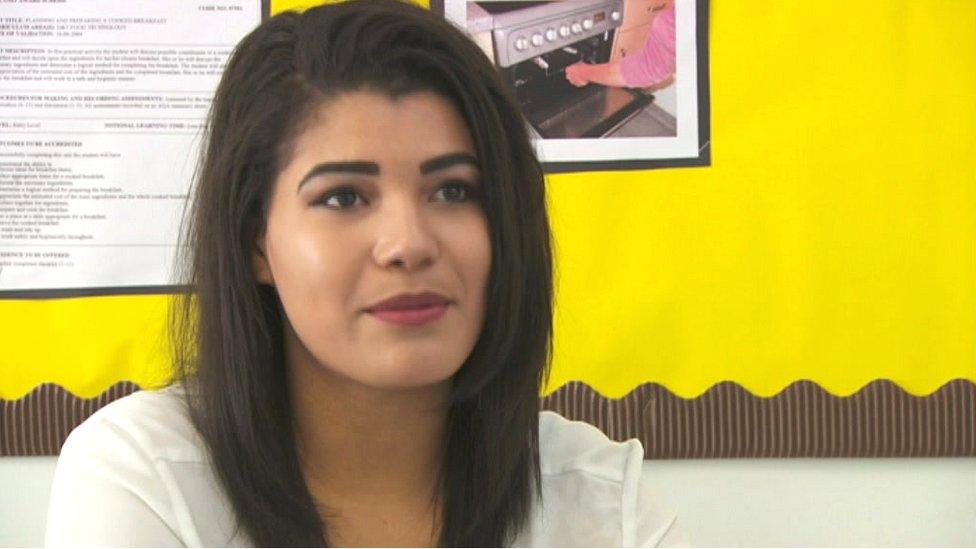
Saffron said she used to get into fights to stick up for friends
Saffron, 15, also draws attention to a sense of crowding in mainstream schools.
"I got permanently excluded for fighting and arguing and just silly little things," she said.
"I am a bit nosy and I do believe in sticking up for friends - so I did, even when it did not concern me."
She says she did ask for help with various issues but did not feel the school was willing to "listen".
"So I took it into my own hands," she says, "and I didn't do a good job of it."
"I was worried and scared and a bit upset when I was excluded. I was leaving quite a lot of friends behind.
"I thought being out of education would stop me from getting a job and I would be stuck on benefits and that is not the life I want."
Saffron is now working hard towards achieving her GCSEs and hopes in the future to get a "good job" and own her own home.
Des Reynolds, executive head teacher at the Short Stay School, said: "As it stands today, all four of these students are on course to achieve five GCSEs."

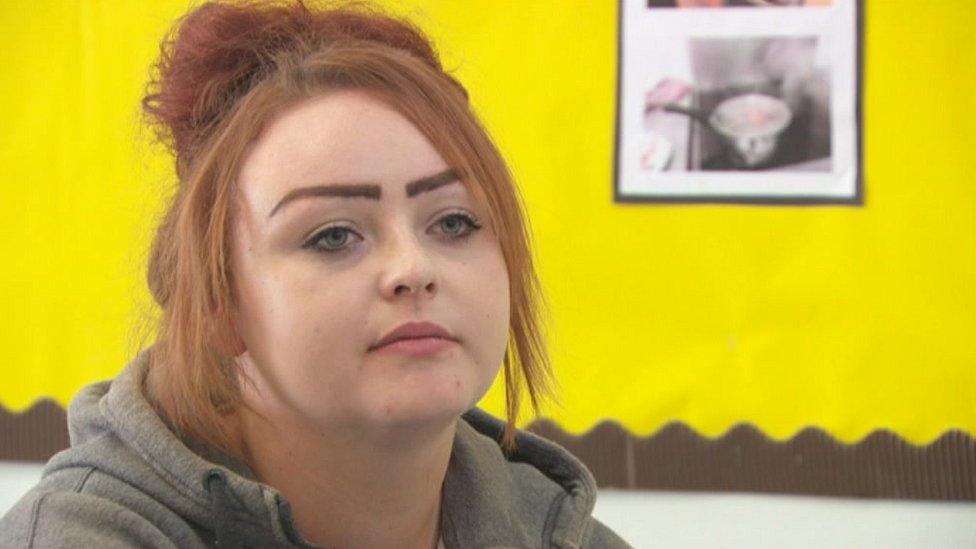
Amy says she was scared to ask teachers for help
"When I was in lessons I would mess about a lot and wouldn't care," says Amy,, who is also 15.
"When I heard I was excluded I felt disappointed in myself. I didn't think it was going to go that far.
"It affected my family as well because they had been trying to persuade me to behave and I let them down. That then affected me more."
Amy said she found it "harder to concentrate in larger classes".
See how many pupils were excluded by schools in your area with our interactive map, external.
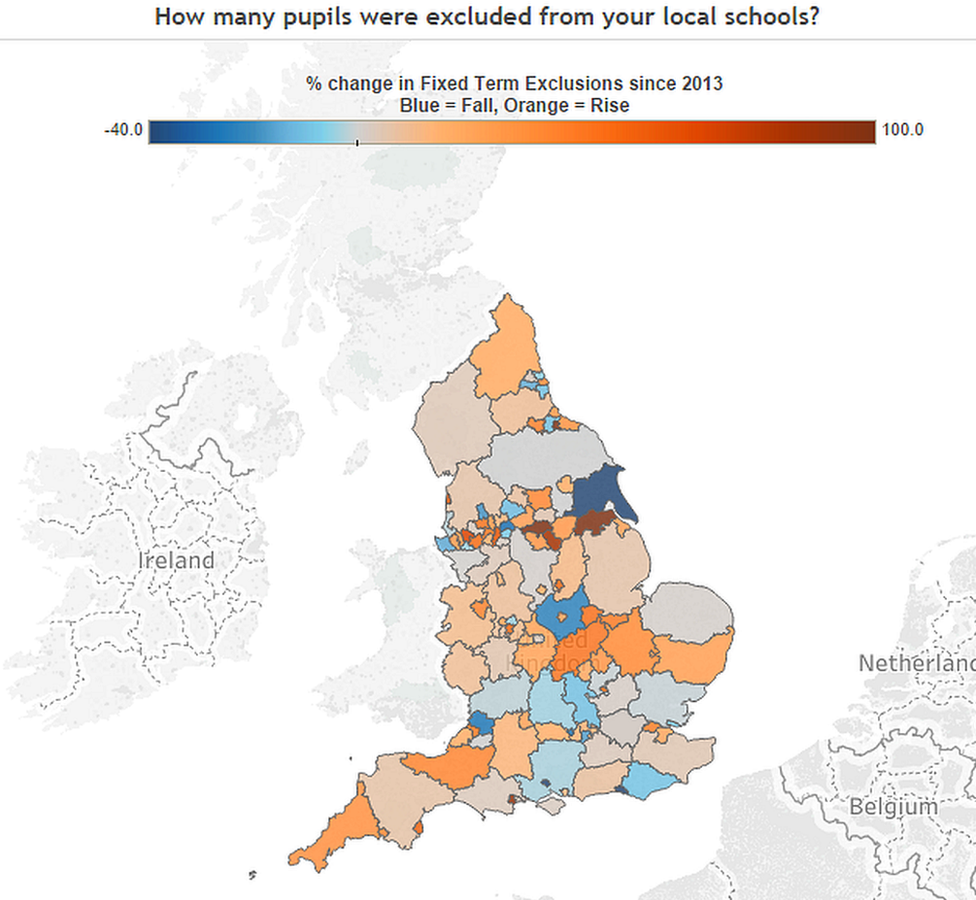
- Published4 October 2016
